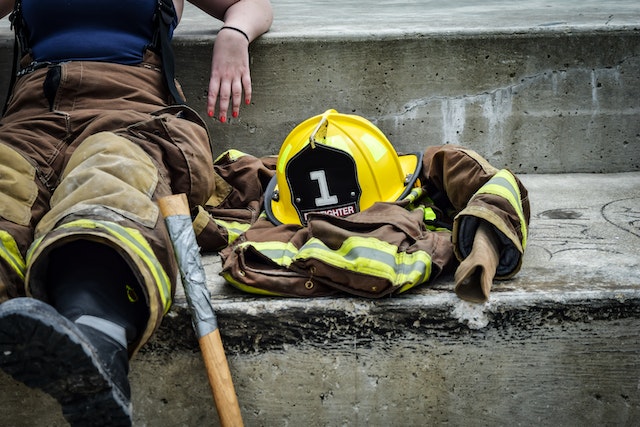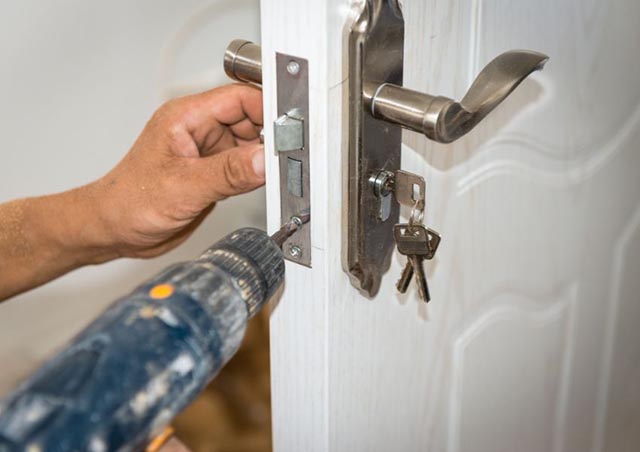How to Know if Your Rental Meets Safety Standards
Making sure your property meets safety standards is not only required by law but also a moral and ethical obligation in the competitive world of rental properties. Landlords are responsible for providing a safe and secure living space for their tenants, free from any risks to their health.
Knowing what safety requirements are and how to make sure your rental property complies with them is essential for landlords. Prioritizing safety standards can help landlords achieve their ethical and legal obligations while also promoting excellent landlord-tenant relationships and long-term tenant satisfaction and retention.
Understanding Safety Standards
Before getting into the finer points of safety standards, let's clarify what they include:
- Meeting Legal Obligations: Each state, alongside federal laws, mandates specific regulations for rental properties. These encompass building codes, health standards, and safety criteria that landlords must uphold.
- Complying with Health and Environmental Standards: Landlords are required to adhere to health and environmental guidelines, covering areas such as mold prevention, pest management, and handling lead paint and asbestos. This involves ensuring proper ventilation, preventing mold growth, and safely disposing of hazardous materials.
- Adhering to Fire Safety Standards: Fire safety holds utmost importance in rental units. Landlords must install smoke detectors, fire extinguishers, and maintain clear emergency exits as per local fire regulations.

- Implementing Regular Inspection and Maintenance Practices: Consistent inspections and maintenance, including professional assessments and preventive measures, are crucial for promptly identifying and addressing potential safety risks. This includes checking for electrical faults, plumbing leaks, and structural integrity issues.
- Ensuring Compliance with Documentation and Certification Requirements: Landlords must maintain thorough records of inspections, maintenance activities, and legal certifications. These records serve as evidence of compliance during disputes or inspections, showcasing adherence to safety standards.
- Educating Tenants on Safety Protocols: In addition to meeting safety standards, landlords should educate tenants on safety procedures, including emergency protocols and proper use of safety equipment. This empowers tenants to respond effectively in case of emergencies.
Extra Safety Precautions
Landlords can take additional precautions to improve the safety of their rental homes in addition to the basic safety criteria already mentioned:
- Developing Emergency Response Guidelines: Crafting a detailed emergency response plan ensures that both landlords and tenants are equipped to handle various emergency situations, such as fires, earthquakes, or floods, efficiently.
- Improving Landscape and Exterior Safety: Maintaining proper landscaping and exterior upkeep is vital in preventing accidents like slips and falls. Landlords should ensure well-lit pathways, well-maintained sidewalks, and trimmed trees to mitigate potential hazards.

- Deploying Strong Locks and Security Measures: Security is paramount for tenants' peace of mind. Installing high-grade locks, surveillance cameras, and alarm systems can deter break-ins and provide added security.
- Integrating Accessibility Features: Ensuring rental properties are accessible to individuals with disabilities not only meets legal obligations but also fosters inclusivity. This may involve installing ramps, handrails, and ADA-compliant bathroom fixtures to accommodate diverse needs.
Importance of Safety Standards
It's not only a matter of following the law; maintaining your rental property's compliance with safety regulations is also your duty as a responsible landlord. Prioritizing safety standards is crucial for the following main reasons:
- Adhering to Legal Obligations: Non-compliance with safety regulations may lead to legal repercussions such as fines, lawsuits, or even eviction notices.
- Protecting Tenant Health and Well-being: Ensuring a secure living environment is crucial to safeguarding tenants from potential injuries or health concerns stemming from hazardous conditions.
- Boosting Tenant Satisfaction and Retention: Tenants are more inclined to remain in properties where they feel secure and comfortable. By prioritizing safety measures, landlords can enhance tenant contentment and diminish turnover rates.
- Managing Reputation Effectively: Positive word-of-mouth is influential in the rental realm. Landlords who prioritize safety standards are better positioned to cultivate a favorable reputation, attract reputable tenants, and evade negative publicity.

- Fulfilling Ethical and Moral Obligations: Beyond legal mandates, landlords bear an ethical responsibility to offer secure housing. Demonstrating a dedication to safety underscores a commitment to tenant welfare.
- Preserving Property Value: Timely addressing of safety concerns can avert costly property damage and extend its longevity.
- Ensuring Financial Security: Initial investments in safety measures can yield long-term savings for landlords by mitigating accident risks, legal entanglements, and property deterioration.
How Redsail Property Management Can Help
We at Redsail Property Management recognize how crucial safety regulations are for rental homes. Our staff of knowledgeable experts can help landlords make sure their properties adhere to all safety and regulatory regulations.
We offer full property management services customized to your requirements, including complete inspections, improvements, and tenant education on safety precautions.
Landlords can rely on us to help them maintain safe and secure rental properties while optimizing their investment returns because of our experience and commitment to quality.
Conclusion
In addition to being required by law, landlords have a moral and ethical obligation to prioritize safety standards in their rental homes. Landlords can ensure the health and safety of their tenants, maintain the integrity of their property, and defend their financial stability and reputation by being aware of and putting safety precautions into place.
Landlords can guarantee their rental properties meet the greatest safety requirements and provide tenants and themselves peace of mind by working with reputable property management companies like Redsail Property Management.
Long-term tenant satisfaction and retention can result from investing in safety measures, which also shows a dedication to the welfare of the tenants. Keeping a rental home safe will also help the landlord draw better tenants and improve their standing in the neighborhood.
In the end, putting safety standards first is about establishing a secure and comfortable atmosphere for all parties involved, not just about following the law.